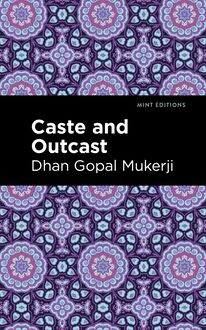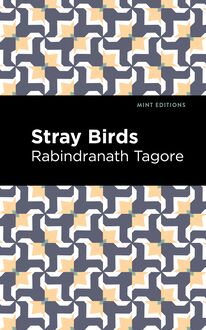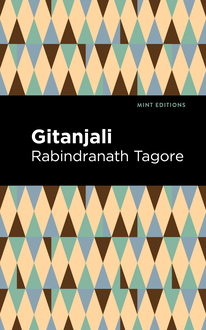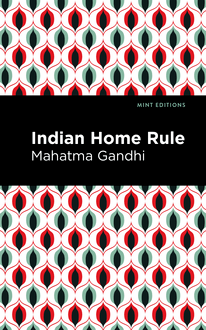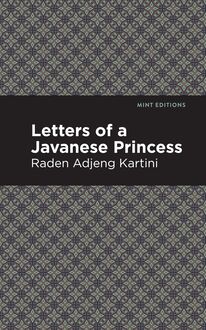-
 Univers
Univers
-
 Ebooks
Ebooks
-
 Livres audio
Livres audio
-
 Presse
Presse
-
 Podcasts
Podcasts
-
 BD
BD
-
 Documents
Documents
-
- Cours
- Révisions
- Ressources pédagogiques
- Sciences de l’éducation
- Manuels scolaires
- Langues
- Travaux de classe
- Annales de BEP
- Etudes supérieures
- Maternelle et primaire
- Fiches de lecture
- Orientation scolaire
- Méthodologie
- Corrigés de devoir
- Annales d’examens et concours
- Annales du bac
- Annales du brevet
- Rapports de stage
La lecture à portée de main

Vous pourrez modifier la taille du texte de cet ouvrage
Découvre YouScribe en t'inscrivant gratuitement
Je m'inscrisDécouvre YouScribe en t'inscrivant gratuitement
Je m'inscrisEn savoir plus
Vous pourrez modifier la taille du texte de cet ouvrage
En savoir plus

Description
Kapalkundala (1866) is a novel by Bankim Chandra Chatterjee. Set in Dariapur, Contai, Kapalkundala was Chatterjee’s second novel. Recognized as a pioneering work of Bengali literature with universal romantic themes, Kapalkundala has been adapted several times for film and television, most recently for a popular Indian Bengali soap opera of the same name. On his way home to Saptagram from a pilgrimage to Gangasagar, Nabakumar encounters a Tantric sage in the forest. After exchanging their greetings, the sage captures the young gentleman in order to sacrifice him to the goddess Shamshaan Kali. Rescued by the sage’s foster daughter, the beautiful Kapalkundala, Nabakumar marries her the next day. Despite their happiness, the past refuses to let them live in peace. As the sage plots his revenge, Nabakumar’s first wife, who left him after converting to Islam, has returned seeking forgiveness. As doubt begins to penetrate their bond, Nabakumar and Kapalkundala lose sight of the only thing that matters: each other. Tragic and timeless, Kapalkundala is a brilliant romance from a legendary figure in Bengali literature. With a beautifully designed cover and professionally typeset manuscript, this edition of Bankim Chandra Chatterjee’s Kapalkundala is a classic of Bengali literature and utopian science fiction reimagined for modern readers.
Sujets
Informations
| Publié par | Mint Editions |
| Date de parution | 08 juin 2021 |
| Nombre de lectures | 0 |
| EAN13 | 9781513224039 |
| Langue | English |
| Poids de l'ouvrage | 3 Mo |
Informations légales : prix de location à la page 0,0350€. Cette information est donnée uniquement à titre indicatif conformément à la législation en vigueur.
Extrait
Kapalkundala
Bankim Chandra Chatterjee
Kapalkundala was first published in 1885.
This edition published by Mint Editions 2021.
ISBN 9781513299372 | E-ISBN 9781513224039
Published by Mint Editions®
minteditionbooks.com
Publishing Director: Jennifer Newens
Design & Production: Rachel Lopez Metzger
Project Manager: Micaela Clark
Translated by Devendra Nath Ghose
Typesetting: Westchester Publishing Services
C ONTENTS F OREWORD P ART I I. A T THE E STUARY OF THE G ANGES II. O N THE COAST III. I N S OLITUDE IV. O N THE TOP OF A SAND - HILL V. O N THE SEA - SIDE VI. I N THE K APALIK’S COMPANY VII. I N Q UEST VIII. I N S HELTER IX. I N THE HOLY SHRINE P ART II I. O N THE HIGHWAY II. A T THE INN III. M EETING WITH THE BEAUTIFUL WOMAN IV. I N THE PALANQUIN V. I N HIS NATIVE LAND VI. I N DOMESTIC SECLUSION P ART III I. I N THE LONG PAST II. A T THE PARTING OF WAYS III. I N HER RIVAL’S HOUSE IV. I N THE PALACE V. I N HER OWN APARTMENTS VI. D OWN AT THE FEET VII. O N THE OUTSKIRT OF THE CITY P ART IV I. I N BED - CHAMBER II. I N THE WOOD III. I N DREAM IV. A T THE TRYST V. O N THE DOOR-STEP VI. I N CONVERSATION VII. G REETING WITH CO - WIFE VIII. H OMEWARD IX. W HERE LAST RITES ARE PAID TO THE DEPARTED HUMANITY
F OREWORD
Kapalkundala is unquestionably one of many masterpieces of Bankim Chandrand this fact, I think, will be deemed a sufficient apology for bringing it out in an English garb. Besides the style, perhaps the most perfect in our language, the masterly delineation of human character and sentiment, the beauty of its descriptive passages, the high imaginative colouring and the sombre background lend to this romance a singular place among the fictions of Bengal, if not, of the world. Such a work should be the common property of man. It is, indeed, impossible to transfer the graces of style and diction from one language to another as much of the spirit is lost with the translation. However, the task here imposed upon the translator has been to convey, through the medium of the most wide-spread language in the world, something of the beauties of the original work. The main charm centres in the character of Kapalkundala around whom the whole plot gravitates. Such a character is unique in its creation, perhaps, unparalleled in any literature. She was indeed, a child of nature, as Miranda or Sakuntala was, though she was something different from either. Miranda and Sakuntala knew the ways of the world but she was naturally ignorant of them. The warm passion of love was singularly wanting in her. When she met Nabokumar she felt for him not what Miranda felt for Fardinand or Sakuntala for Dussanto but she felt for him what a kind-hearted woman feels for a benighted traveller. Even her married life brought no change. Nature gave her the best education—the endless sea, the vast sky, the broad and general air enlarged her heart. She was all sacrifice without the faintest tinge of selfishness in her. The only human training she received that imparted by the Kapalik and Adhicary and that was complete self-abnegation. Such a flower will grow best by the sea-side in the open air and sunshine. It must wither when transplanted to the flower pot of the hot-house of an artificial society with all its formalities and hypocrisies, and so the story ended in a tragedy. The translator is aware of the many imperfections in his work and as it has been hurried through the press, he craves the indulgence of his readers, for any errors that might have crept into it.
C ALCUTTA . 18th August, 1919
Charu Chandra Palit
PART I
I
A T THE E STUARY OF THE G ANGES
Nearly two hundred and fifty years have passed away since the grey hours of one Magh morning saw a passenger-boat making her way up the river on her voyage back from the Saugor Islands. It was usual at that time for such boats to sail in strong parties on account of the scare of the Portuguese and other pirates. But these passengers had no companion-boats. The reason was that a thick fog had overspread the horizon towards the latter part of the night. The crew, having lost their bearings, drifted a far long way from the little flotilla. Now there was no knowing which direction she was making for. Most of the people on board were asleep. Only an old man and a youth lay awake, the former conversing with the latter. The former for a moment broke off and addressed one of the crew: “Boatman, what distance can you cover this day?”
“I can hardly say” replied the boatman after a short indecision.
The interrogator took offence and began railing at the boatman. “What is in the hands of Providence, Sir” chipped in the youth, “can’t be foretold by the wise, far less by a simpleton. You must not bother over that.”
“Not bother!” echoed back the other furiously. “What do you mean? The fellows forcibly cut away paddy from some twenty odd bighas of my land and what my children would live upon the whole year?”
This news he received from the fresh arrivals not before he had come out to the Saugor Islands. “So I observed already” rejoined the youngman, “when you have none other guardian left home, it was wrong of you to venture out.”
“Not venture!” snapped the old man as sharply as before. “Three quarters of my life have been spent and only the fourth is left. Now or never to work for one’s next life.”
“If I have read the scriptures aright,” added the youth, “the merits of pilgrimages accruing to after-life are equally within the reach of those who stay at home.”
“Why did you stir out then?” returned the old man. “So I told you at the very outset,” replied the other, “I had a great mind to have a look at the sea. So I came.” Then he exulted half to himself “Ah! what a sight! This is never to be forgotten in ages of the soul’s migrations.”
“From afar, as on a wheel of iron, slender
All blue with tamarisks and palms extended,
Outshines the briny oceans’ margin yonder,
Like streak of rust-mark with the wheel-rim blended.”
The elderly man’s ear was not following the poetry but he was listening raptly to the conversation passing among the crew.
“Eh, brother, our folly is looking the bigger” spoke one of the crew to the other. “Are we out on the open sea now, or in what corner of the globe the boat has got to, can’t understand.” The speakers voice had the ring of a great fright. The old man scented some danger ahead and nervously enquired “Boatman, is anything the matter?” The man addresssed to did not answer. But the young blood waited not for the reply. He came out into the bare open and saw the day was dawning. The heavy pall of a thick mist lay over everything. The stars, the moon, the sky, the coast-line were all blotted out. He understood that the crew had lost all directions. They were not certain which way they were steering the boat. They feared they would perish in the boundless open sea.
A screen hung out in front as cold protector and the passengers were quite in the dark about all this. But the young man knew the plight and explained to the old man the whole thing in detail. Then arose a great uproar aboard. Of the female passengers some awoke at the sound of the conversation and no sooner had their ears caught the remark than they set up a loud wail. “Row shoreward, row shoreward, row shoreward,” vociferated the elderly man.
The youth smiled softly and put in “where is the shore? If we could but know this, how would the danger arise?”
Now louder grew the hub-bub. The youth quieted them down somehow and said “Have no fear. The day has broken and the sun rises within two odd hours. The boat can never sink by that period. Now stop rowing and let her go adrift. Next when the sun breaks through, we would lay our heads together.”
The crew approved of this bit of advice and acted accordingly.
All boathands sat stockstill. The passengers ate their hearts out in an agony of suspense. The wind blew a gentle sigh. The shake of the boat was scarcely felt on account of the smooth glassy sea. However, they felt sure that their last hour had struck. Silently did men say their prayers and loudly did women raise a babel of cries uttered in vocal contortions of different keys. One of them had given a watery grave to her babe in the deep water of the Bay—she had dropped her child but could not rescue it—she of all others did not weep.
While in this nervous mood of expectancy, they guessed it to be nine o’clock. At that time the crew all on a sudden shouted out at the top of their lungs the names of the five Pirs of water and kicked up a row. All on board burst in one voice “What, what is up?” All the boathands cried out in a chorus. “The sun has appeared. Land ahoy.” Every body crawled out into the open space and began to observe the locality and the surroundings. They saw the sun had come out and the mist rolled away like a curtain before the sun revealing all sides in their naked clearness. The sun shone pretty above the horizon line. The water on which the boat floated was not the sea but the estuary of a river though the same expanse was scarcely observable any where else. One side of the river was within easy reach—it was twenty-five yards more or less from where the boat lay. But the coast-line was hardly visible on the opposite side. Every other way besides, shimmered the wild waste of water in the glare of the brilliant sun and sweeping off immeasurably melted into the misty sky-line. The adjacent water had a turbid appearance as is usually noticeable in river water though the same looked blue at a distance. They felt certain that they had drifted down into the deep blue sea. But by some stroke of good luck they were pretty near the land. So they screwed up some courage. They calculated the direction from the sun’s position. The fringe of the frontal ground was easily concluded to be the western seaboard. At a close range from where the boat floated was the mouth of another river pouring its gurgling flow of gold into the channel. Innumerable water-b
Attention
En entrant sur cette page, vous certifiez :
- 1. avoir atteint l'âge légal de majorité de votre pays de résidence.
- 2. avoir pris connaissance du caractère érotique de ce document.
- 3. vous engager à ne pas diffuser le contenu de ce document.
- 4. consulter ce document à titre purement personnel en n'impliquant aucune société ou organisme d'État.
- 5. vous engager à mettre en oeuvre tous les moyens existants à ce jour pour empêcher n'importe quel mineur d'accéder à ce document.
- 6. déclarer n'être choqué(e) par aucun type de sexualité.
YouScribe ne pourra pas être tenu responsable en cas de non-respect des points précédemment énumérés. Bonne lecture !
-
 Univers
Univers
-
 Ebooks
Ebooks
-
 Livres audio
Livres audio
-
 Presse
Presse
-
 Podcasts
Podcasts
-
 BD
BD
-
 Documents
Documents
-
Jeunesse
-
Littérature
-
Ressources professionnelles
-
Santé et bien-être
-
Savoirs
-
Education
-
Loisirs et hobbies
-
Art, musique et cinéma
-
Actualité et débat de société
-
Jeunesse
-
Littérature
-
Ressources professionnelles
-
Santé et bien-être
-
Savoirs
-
Education
-
Loisirs et hobbies
-
Art, musique et cinéma
-
Actualité et débat de société
-
Actualités
-
Lifestyle
-
Presse jeunesse
-
Presse professionnelle
-
Pratique
-
Presse sportive
-
Presse internationale
-
Culture & Médias
-
Action et Aventures
-
Science-fiction et Fantasy
-
Société
-
Jeunesse
-
Littérature
-
Ressources professionnelles
-
Santé et bien-être
-
Savoirs
-
Education
-
Loisirs et hobbies
-
Art, musique et cinéma
-
Actualité et débat de société
- Cours
- Révisions
- Ressources pédagogiques
- Sciences de l’éducation
- Manuels scolaires
- Langues
- Travaux de classe
- Annales de BEP
- Etudes supérieures
- Maternelle et primaire
- Fiches de lecture
- Orientation scolaire
- Méthodologie
- Corrigés de devoir
- Annales d’examens et concours
- Annales du bac
- Annales du brevet
- Rapports de stage


